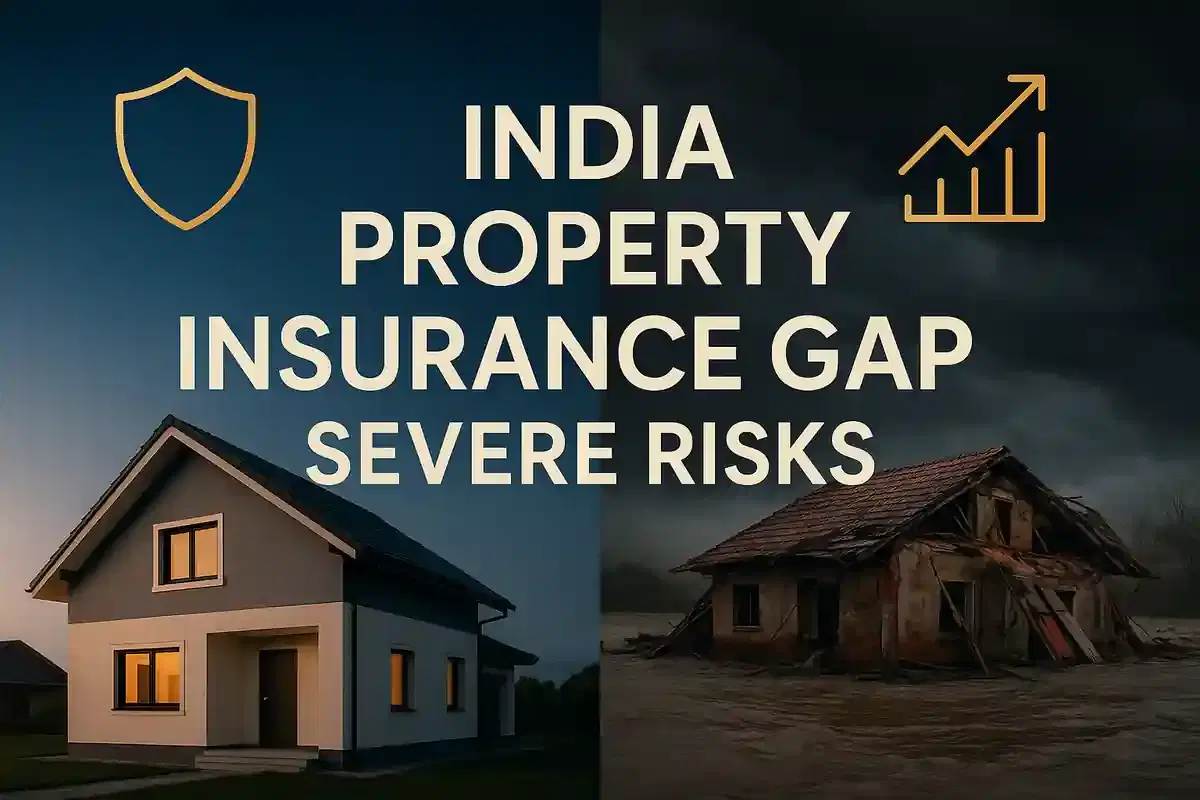India Lags in Property Insurance Despite Escalating Climate and Asset Risks
Insurance
|
29th October 2025, 7:30 AM

▶
Short Description :
Detailed Coverage :
The article highlights the urgent need for property insurance in India, a sector with negligible penetration despite escalating risks from climate change and rising asset values. Recent natural disasters such as floods in Uttarakhand, Himachal Pradesh, and northern states, along with urban expansion, have made homes and businesses more vulnerable. Concurrently, property prices have surged dramatically, especially in cities like Gurugram, Hyderabad, and Bengaluru, meaning the cost to rebuild is now far higher than initial purchase prices, making uninsured losses potentially devastating for households and businesses.
Home insurance covers structural damage from natural calamities (floods, earthquakes, cyclones, landslides) and man-made incidents (fire, explosions, vandalism), as well as contents like furniture and electronics. Even insuring a property worth ₹ 50 lakh with ₹ 10 lakh of contents can cost as little as ₹ 1,240 annually. Fire-related claims are also rising due to increased use of high-power appliances.
Commercial property insurance is vital for businesses, protecting revenue streams, supply chains, and operations. It often includes business interruption cover, crucial for SMEs facing prolonged closures. The broader economic impact is significant, as uninsured businesses can lead to job losses and strain local economies, particularly given MSMEs' substantial contribution to India's GDP.
Compared to countries like the United States (over 95% home insurance penetration) and the United Kingdom (70-75%), India's rates are minimal. The article suggests that mandatory property insurance for certain establishments could be beneficial.
**Impact** This news has a significant impact on the Indian stock market and Indian businesses. The low adoption of property insurance means that individuals and businesses are highly exposed to financial losses from natural disasters and other unforeseen events. This can lead to widespread financial distress, slow down economic recovery post-disaster, and increase reliance on government relief, thus hindering overall economic growth and stability. The financial services sector, particularly insurance companies, has a huge untapped market, but a lack of consumer awareness and perceived need is a major barrier. Rating: 8/10.
**Difficult Terms** Property Insurance: An insurance policy that covers damage to a building and its contents. Climate Volatility: Unpredictable changes in weather patterns leading to extreme events. Asset Values: The market worth of properties and other possessions. Flash Floods: Sudden, intense floods caused by heavy rainfall or dam breaks. Landslides: The downward movement of rock, soil, or debris on a slope. Vulnerable: Susceptible to physical or emotional harm. Uninsured Loss: A financial loss that is not covered by an insurance policy. Contents Insurance: Insurance that covers personal belongings inside a home or business. Structural Damage: Damage to the main load-bearing elements of a building. Man-made Incidents: Events caused by human actions, such as fires or vandalism. Vandalism: The intentional destruction of or damage to property. Inundation: Flooding or being covered with water. High-load appliances: Electrical devices that draw a large amount of power, increasing fire risk. Commercial Property Insurance: Insurance designed to protect business property against damage or loss. Supply Chains: The sequence of processes involved in the production and distribution of goods. Business Interruption Cover: Insurance that compensates a business for lost income due to a temporary closure caused by a covered event. SMEs (Small and Medium Enterprises): Businesses that fall below certain thresholds in terms of employee numbers and revenue. MSMEs (Micro, Small and Medium Enterprises): A broader category of small businesses in India. GDP (Gross Domestic Product): The total monetary value of all finished goods and services produced within a country's borders in a specific time period. National Imperative: A matter of vital importance for a nation's survival or prosperity. Mandatory Property Insurance: Insurance that is legally required for certain properties or businesses. Third-party motor cover: Insurance that covers damage or injury to others in a vehicle accident. Penetration: The degree to which insurance products are adopted by the public in a country. Per capita income: The average income earned per person in a given area in a specified year. Disaster-prone zones: Areas that are frequently affected by natural disasters. Government Relief: Aid provided by the government to individuals or communities affected by disasters. Real Estate: Property consisting of land and buildings. Continuity: The ability of a business to continue operating without interruption after a crisis. Resilience: The capacity of individuals, communities, or businesses to survive, adapt, and grow no matter what kinds of chronic stresses and acute shocks they experience. Buffer: A thing that acts as a protective cushion or support. Urban Density: The measure of population or built environment within a given urban area.